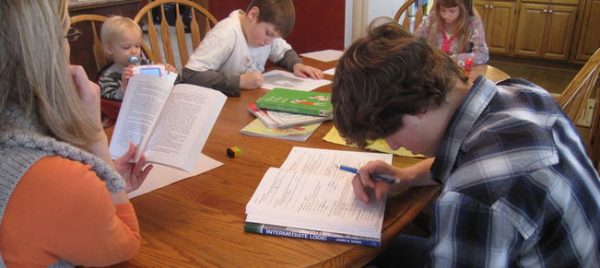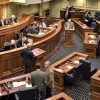A register of all children not attending school is being put forward by the Education Secretary.
Mr Hinds said on Tuesday: “The term ‘home education’ has now acquired a much broader meaning than it used to. It is now a catch-all phrase, used to refer to all children not in a registered school.
“So whilst this does include those actually getting a really good education at home, it also includes children who are not getting an education at all, or being educated in illegal schools where they are vulnerable to dangerous influences – the truth is, we just don’t know.
“As a Government, we have a duty to protect our young people and do our utmost to make sure they are prepared for life in modern Britain.
“That’s why this register of children not in school is so important – not to crack down on those dedicated parents doing an admirable job of educating their children in their own homes, but to prevent vulnerable young people from vanishing under the radar.”
Parents will be responsible for registering their child under the plans, the Government said.
The proposed measures will also aim to increase support for home-educating parents, with local authorities required to provide teaching resources or financial contributions to exam fees.
Juliet English homeschooled seven children over 20 years and told Premier a register would seem hypocritical to parents: “One of the issues around registration is that they want to ensure that all children are provided a suitable education and that’s the term they use – it’s a ‘suitable education’.”
“But when you look at some of the things happening in the education system, why parents are taking the children out of schools in their droves right now is precisely because the children are not receiving a suitable education within the school. So parents quite rightly feel ‘Why do I need to come and tell you that I’m having to carry my child when you messed-up royally and my child is now suffering from anxiety, other mental health issues, depression or is a victim of bullying or has special educational needs that are not being met?'”
The Department for Education said an estimated 60,000 children are thought to be educated at home, with the number rising annually.
“Parents feel that the state should have no saying that because when they did have the opportunity, they didn’t provide the education that child needed.”
Christian Education Europe said in a statement: “Councils already have the authority to request proof that parents are providing a full-time, suitable education, and to issue a school attendance order if they are not satisfied. The proposed system of monitoring is an unnecessary intrusion into the everyday lives of British families, and an unsettling attempt to wrest away from parents their fundamental human right of choosing their children’s education, as outlined in the 1996 Education Act and the European Convention on Human Rights.”
They added that when a similar idea was mooted in 2008, “supporters of home education broke the record for the number of local petitions presented at one time in the House of Commons.
“In the last month the government has released plans to remove the option of parental opt-out from specific classes in schools, and now attempts to remove the freedom of choice within homes. The family unit, parental rights, and the protection of children are under threat as never before, and it is up to each person to preserve the freedom of family life in the UK. ”
They were referring to the potential removal of parents’ rights to withdraw their children from Relationship and Sex Education classes in the months running up to a child’s 16th birthday.
A public consultation on homeschooling will be open until June 24.

















